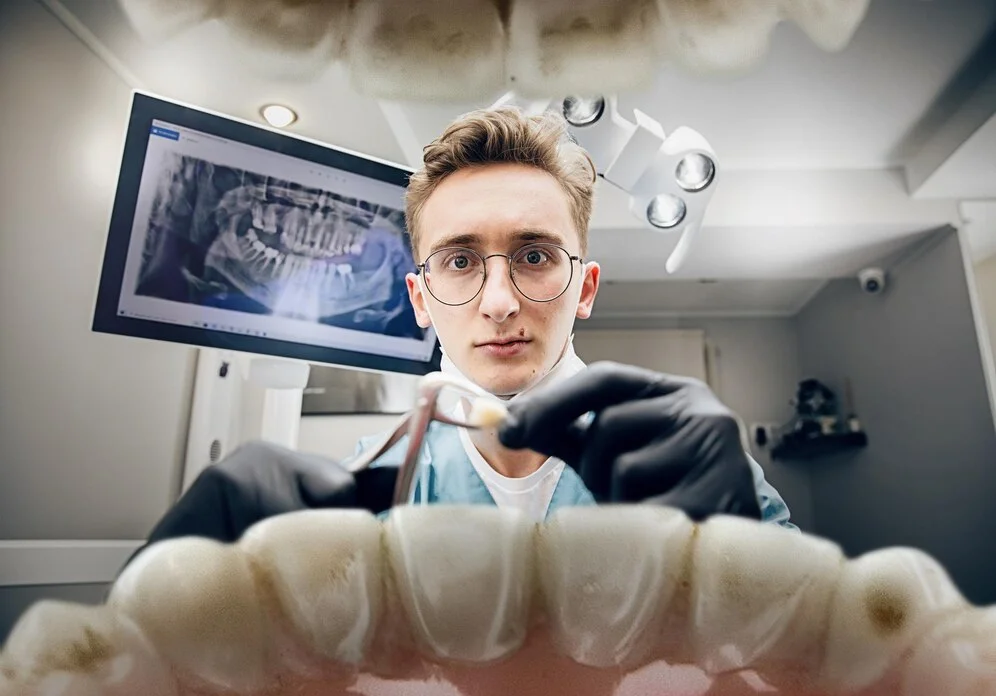Key Takeaways
- Dental implants enhance your dental health and provide a long-lasting replacement for lost teeth.
- Recognizing signs such as difficulty chewing, shifting teeth, and chronic pain can indicate implants are needed.
- Speaking with a dentist to determine if implants are the best option for you is essential.
Introduction
Our smiles are often the first impression we give the world, and maintaining them is vital for self-esteem and overall health. However, several things can cause tooth loss, eventually impacting our dental health and self-esteem. As a permanent and aesthetically pleasing substitute for lost teeth, dental implants have become a noteworthy solution. The warning indications that you may require dental implants will be discussed in this article, along with how they can improve your smile and overall quality of life.
Difficulty Chewing or Eating
Consider dental implants if you struggle to chew certain foods or avoid them altogether. Missing teeth can make it difficult to break down food properly, leading to digestion issues and limiting your diet. Dental implants ensure a balanced diet and improved nutrient intake, offering the stability required to enjoy a wide range of meals. Finding reliable dental implants in Plantation FL provider, can be a pivotal step towards enjoying meals without discomfort again.
Shifting Teeth or Changes in Bite
The neighboring teeth may start to move into the gap left by a missing tooth. This natural movement can alter your bite over time, leading to misalignment and even jaw pain. Shifting teeth affects aesthetics and can compound dental issues, making it harder to clean teeth properly and increasing the risk of cavities and gum disease. Dental implants act as artificial roots, maintaining the position of surrounding teeth and preserving the natural structure of your face and mouth.
Pain Due to Infected or Damaged Teeth
Chronic pain resulting from severely infected or damaged teeth may also signal the need for dental implants. When traditional treatments, like fillings or crowns, aren’t enough to salvage decayed teeth, removing and replacing them with implants can be an effective solution. Implants alleviate pain and prevent the spread of infection that could compromise oral health. If you’re experiencing persistent discomfort, seeking advice from a dental professional about implant options is crucial for relieving pain and restoring function.
Loose or Ill-Fitting Dentures
While dentures are a standard solution for missing teeth, they can sometimes become loose or uncomfortable, especially after significant bone loss in the jaw. This instability can cause sores and embarrassment and further decrease one’s quality of life. Dental implants offer a more secure alternative by anchoring false teeth directly into the jawbone, leading to a more comfortable and confident experience without the hassle of denture adhesives or shifting. Individuals with dentures experiencing discomfort should explore implant-supported denture options to improve stability and oral health.
Self-Consciousness About Missing Teeth
Beyond functional issues, the psychological impact of missing teeth on confidence and social interactions can be significant. Dental implants might be the solution if you hide your smile or feel less confident in personal and professional settings. Because implants look and work like real teeth, you may smile and engage with people without feeling self-conscious or awkward. Boosting self-esteem is an often overlooked yet invaluable benefit of choosing dental implants.
Bone Loss in the Jaw
Losing teeth not only impacts oral function but also affects your jawbone. Without natural teeth stimulation, the jawbone can deteriorate over time, leading to a sunken facial appearance and further dental issues. Dental implants are unique in engaging with the jawbone, offering the necessary stimulation to maintain density and volume. If you’ve been diagnosed with jawbone loss, discussing implant options with your dentist is essential to prevent further bone deterioration.
Conclusion
Recognizing the signs that you might need dental implants is the first step toward maintaining a healthy, confident smile. These implants provide a durable alternative to traditional dentures, improving not only the appearance of smiles but also the health and function of the mouth and missing teeth. Their ability to prevent shifting teeth, alleviate chronic pain, stabilize dentures, and even stimulate jawbone health underscores their comprehensive benefits. If you identify with any of the signs discussed, consult a dental professional to explore how implants can enhance oral health and improve quality of life.







